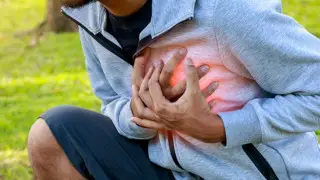
Kidney stones are the most common health condition associated with the urinary system. Every year, there are about 600,000 kidney stone cases in the United States. Kidney stone disease has become a very common problem. Many times this disease occurs on a very small scale and does not bother the person much, but when it becomes serious, it can cause unbearable pain. The function of the kidney is to clean the blood and make urine. It works to remove the toxins (a kind of waste) from all the things you eat and drink, but when these toxins are not completely removed from the kidneys, they gradually accumulate and form stones. Take the form which in medical language is called kidney stone.
There are many reasons for kidney stones, but to deal with this disease, it is important to recognize its initial symptoms. This problem in the body for a long time can cause kidney damage and kidney failure. Kidney stones are also called nephroliths or renal calculi. These are solid collections of salts and minerals usually composed of calcium or uric acid. These pulses can range from tiny grains to the size of a tennis ball. These are formed inside the kidneys and sometimes also enter the urinary tract. Stones are formed when toxic elements from your food and drinks, i.e. a kind of waste, get accumulated in the kidneys or urinary tract.
This problem especially arises when people do not drink enough water. Kidney stones are quite common in people who have diabetes or obesity. This disease can also be caused by a genetic condition called cystinuria. Small kidney stones usually do not cause any special symptoms, but when they reach a person's urinary tract, they can cause severe pain and many problems. If the kidney stone is small then it passes out of the body through urine. But if it is large then it causes a lot of pain.
Kidney stones cause terrible pain and some people even compare it to the pain of being stabbed. Usually, this pain occurs when the stone enters the urinary tract, which causes difficulty in passing urine and puts pressure on the kidneys. Kidney stone pain often starts suddenly and when the stone moves from one place to another, the pain becomes more intense.
If the stone reaches the area between the ureter (urinary tube) and the urinary bladder (urinary bladder), it causes difficulty in passing urine. This condition is called dysuria. In this also the patient may have to face terrible pain.
A common symptom of kidney stones is blood in the urine, also known as hematuria. This blood can be red, pink or brown. Many times this blood in urine is so small that it cannot be seen without a microscope. However, the doctor can detect blood in the urine after examination, which later makes it clear that the patient is suffering from kidney stones.
If your urine is clean and does not have any strong odor, it means that you are healthy. At the same time, if the urine of a person is dirty or foul smelling, then it can be a sign of kidney stones. Bad smell in urine can also be caused by bacteria which causes infection in the urinary tract.













Copyright © 2025 Top Indian News
